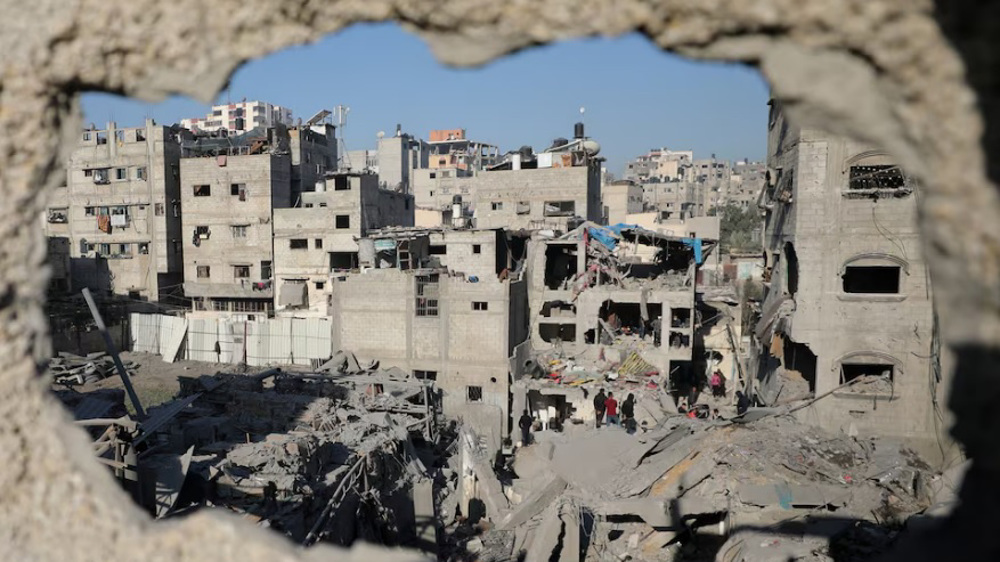Israeli video of hunger striking Palestinian prisoner ‘fake’
The representatives of the hundreds of Palestinians who are on a hunger strike in Israeli jails have denounced as “fake” footage released by the regime that Tel Aviv claims to show the protest leader breaking his fast.
Israel says the footage, released by Israeli media on Sunday, shows the campaigner and jailed leader of the Palestinian Fatah Movement, Marwan Barghouti, eating food in his cell.
Led by Barghouti, the mass strike, dubbed the Freedom and Dignity Strike, began on April 17. As many as 1,500 prisoners initially joined the action, but now some 2,000 are believed to be refusing food in incarceration to protest their dire conditions in Israeli jails.
The National Committee for the Freedom and Dignity Strike, which acts as a front for the campaign, said the footage dated back to 2004, and that its release was a deliberate attempt to dent the hunger strikers’ will.
The footage comprises two separate videos without timestamp, featuring a man whose face is not clearly visible.
The committee also said Barghouti’s hairline had now receded farther back than that of the man seen in the videos.
The committee said, “The utter baselessness of the report becomes clear. The fabrications and theatrics demonstrate Israel’s utter failure to break the iron will and steadfastness of the growing hunger strike movement.”

The Palestinian Committee of Prisoners’ Affairs likewise described the release of the video as part of an Israeli “war of lies” to discredit Barghouti and other hunger strikers.
Barghouti’s lawyer said the release of the video was “expected as part of the psychological and media war the Israel prison service is conducting against the prisoners.”
Also on Sunday, Barghouti’s wife Fadwa told a press conference that the footage was “fabricated,” and called the move “despicable.”
“The prisoners are familiar with Israel’s lies and games and the video they released signals the beginning of its fall,” she said.
Israeli newspaper Ha’aretz, meanwhile, said the Israeli prison service had claimed they had set Barghouti up in an attempt to see if he would break his hunger strike.
Some 6,500 Palestinians are currently being held in Israeli jails, 536 of them arbitrarily, according to figures provided by the Palestinian prisoners’ rights group Addameer in January.
Palestinian inmates complain that they have been subjected to assault and torture at Israeli prisons.
They have often resorted to hunger strikes in an attempt to voice their anger at the so-called administrative detention, which is a form of imprisonment without trial or charge that allows Israel to incarcerate Palestinians for six-month periods.
Leader: Iran has no proxy forces in West Asia
US fighter aircraft shot down ‘in friendly fire’ amid aggression on Yemen
Yemeni FM: Israel’s sponsors accountable for ongoing aggression on Sana’a
Eight Palestinians killed as Israel attacks Gaza school, hospitals
VIDEO | Rome, Milan host new protests in solidarity with Palestinians
Dec. 21: ‘Axis of Resistance’ operations against Israeli occupation
Spain jurists demand ties with Israel ties be cut
VIDEO | Press TV's news headlines












 This makes it easy to access the Press TV website
This makes it easy to access the Press TV website